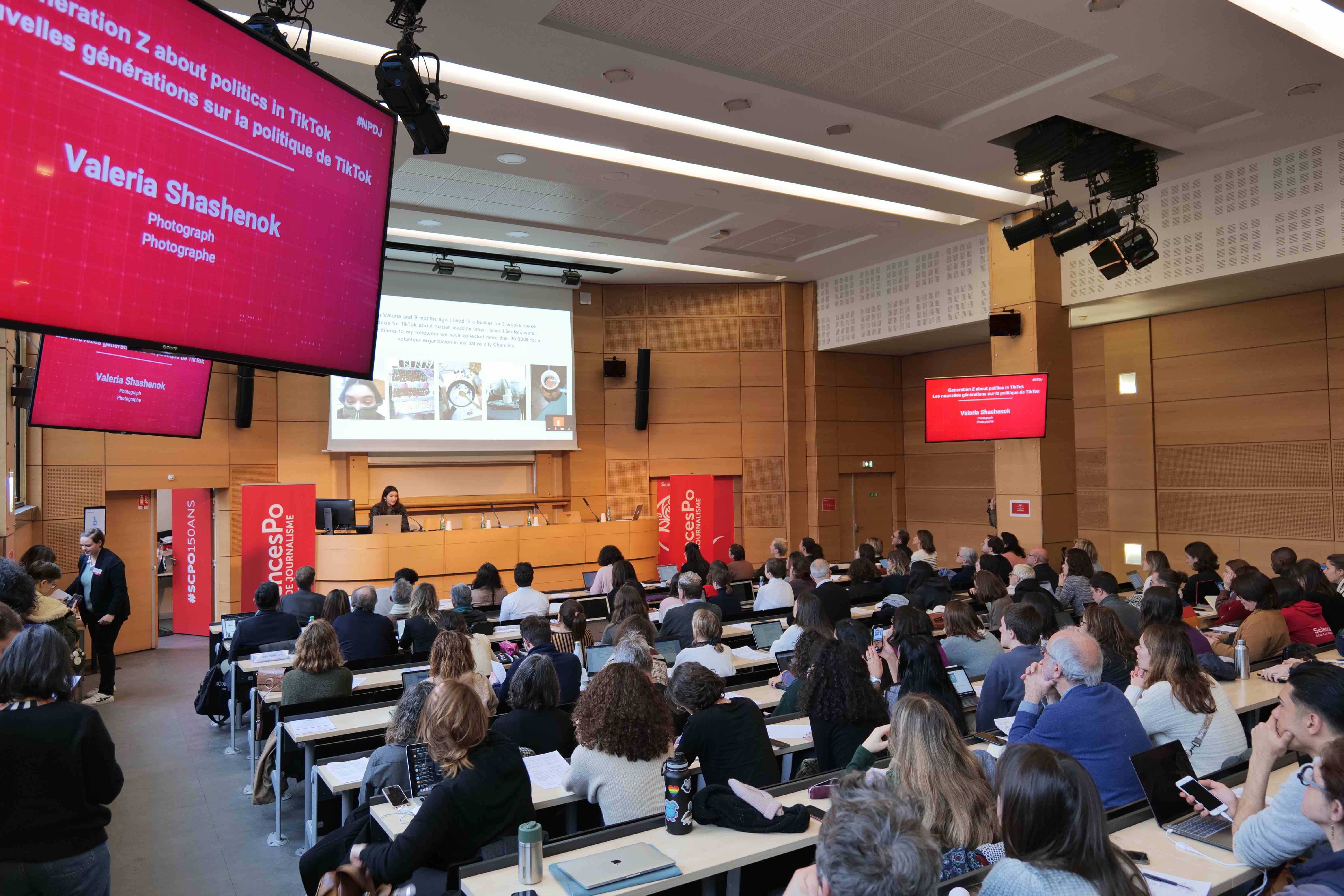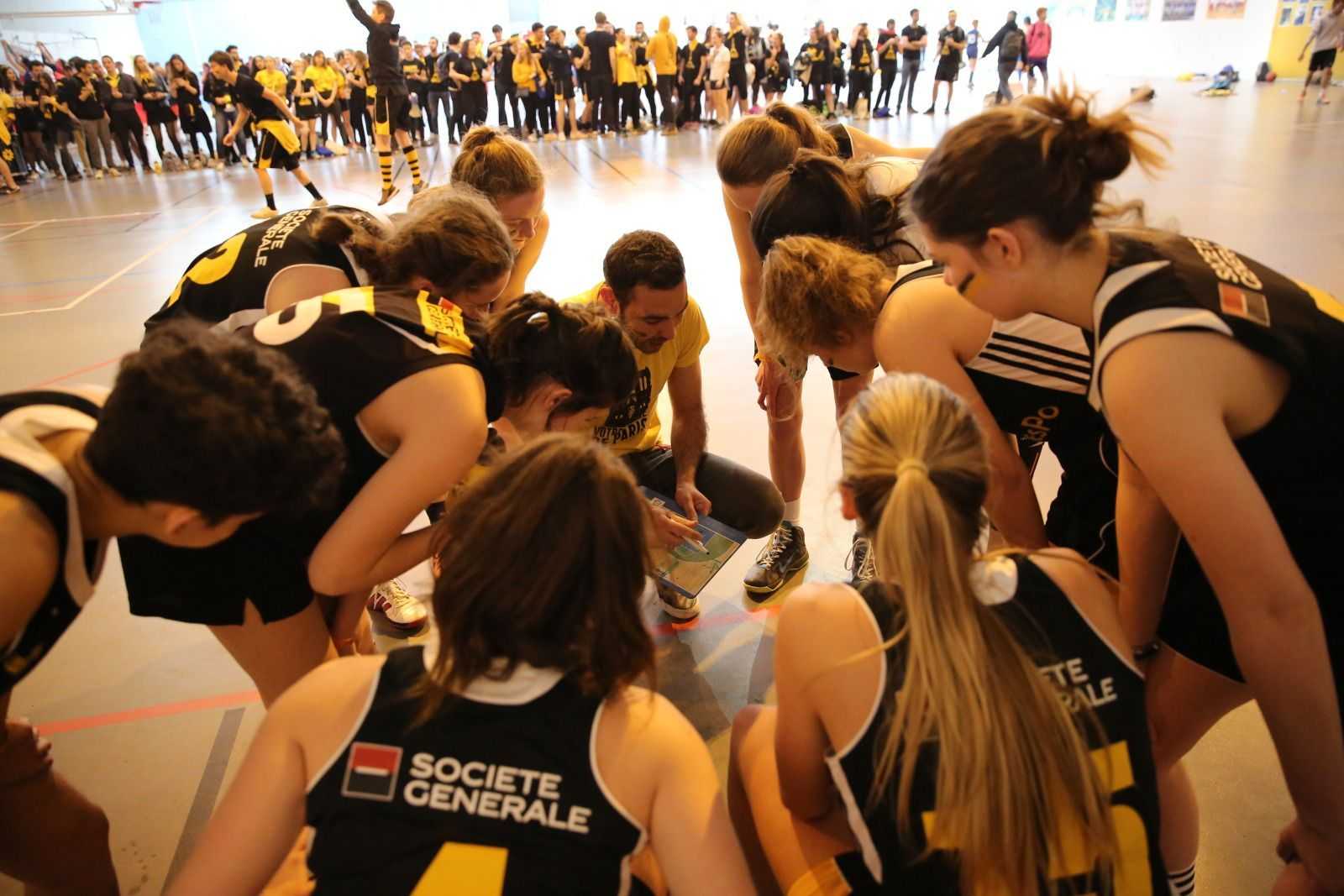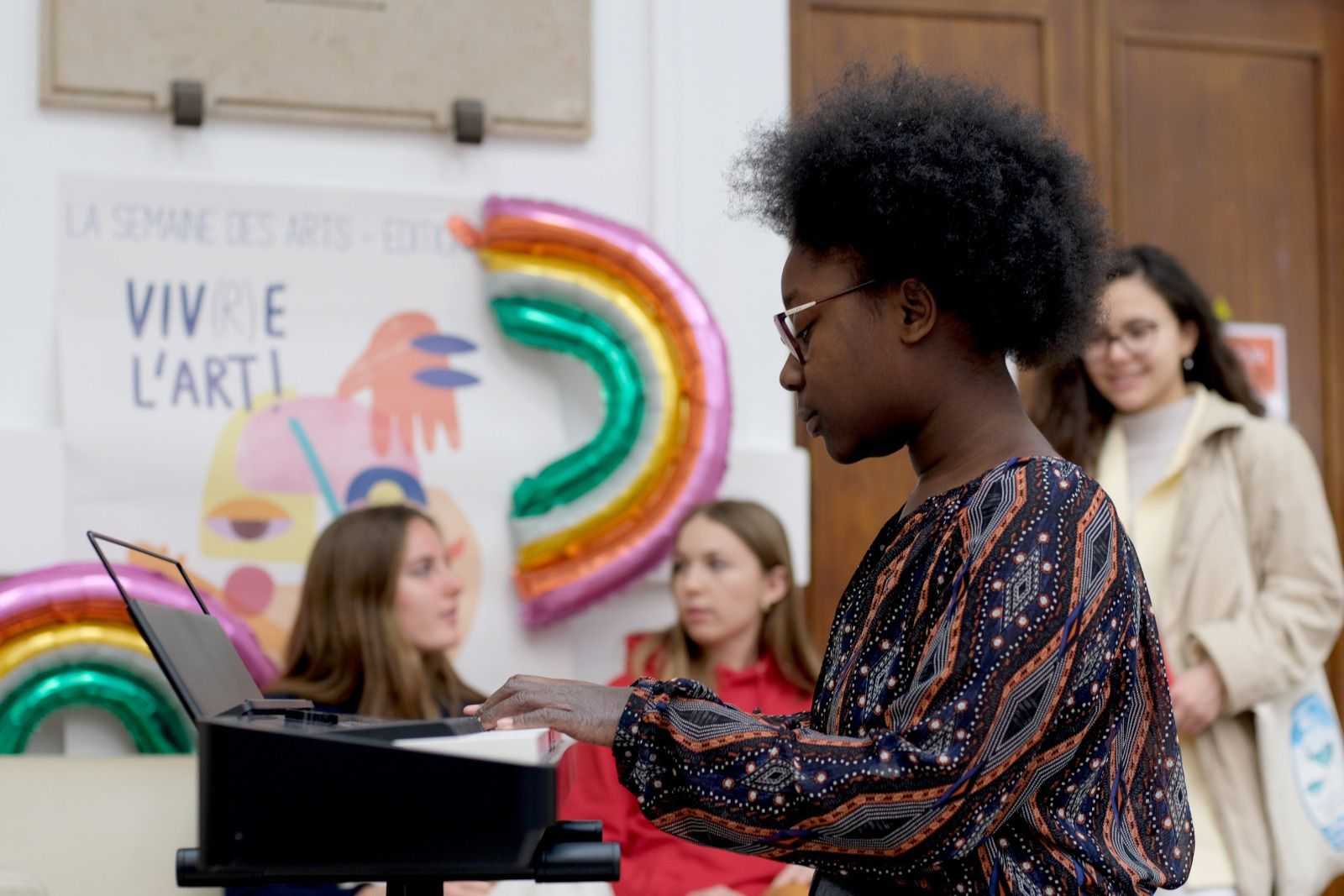
Home>Get involved>Student associations and initiatives>Training and support
Training and support for associative projects
Training for student association leaders
Included in the resources offered by Sciences Po to those in charge of student associations and initiatives, is a range of specific training courses, currently comprising 4 mandatory modules and 4 optional modules.
Additional training courses may also be trialled during the academic year 2023-24.
These foundation classes are tailored to be highly practical and valuable assets for associative activities at Sciences Po.
Mandatory modules (taught in French)
Run by: the Student Life team - Duration: 2 hours
The particularities of associative life at Sciences Po, and the basic tools for the smooth running of an association.
- The key principles of student life at Sciences Po (within the framework of the Student Life regulations, who does what, reminder of best practices, etc.)
- Organising an event from A to Z, on-campus or outside Sciences Po
- Communication
- Useful tips for running an association
- Resources and contacts
- Budget management and internal funding options (Student Life Commission, student association fund)
- Ensuring the continuity of activities from one year to the next
Presented by the Department of Student Life and the student life coordinators on the regional campuses.
Run by Solidarité Femmes - Duration: 2 hours
Prior to training, if possible:
Students will receive a questionnaire regarding their knowledge of the subject and elements they would like included in the training course.
- Gender violence in higher education in France
- The gender violence spectrum
- Legal framework and institution regulations
- The notion of consent and our perception of victims
- Themes students would like to explore
Training course content:
- Introduction and theory
- Preventing SGBD in student life
- Action to be taken in the event of SGBD observed or reported
- Assisting a victim or witness during a student event
- Acting as a witness
- Addressing a situation of SGBD from a legal standpoint
Includes: case studies, quiz, theoretical review, role play, workshops in small groups and discussions.
Run by: LICRA - Duration: 2 hours
This training session aims to provide student associations with the resources necessary to prevent and combat actions and behaviour of a racist, antisemitic or discriminatory nature.
The module identifies the different types of discrimination according to French law, putting them in context in order to better implement prevention within the association and to adopt the appropriate reactions in the event of such behaviour.
It aims to raise awareness about the different forms of hate crime and to reiterate the roles and responsibilities of student association leaders.
The module features QR codes leading to activities such as quizzes (specifically for online sessions), to facilitate interactions.
Run by: Association Addictions France - Duration: 6 hours (divided into 2 or 3 sessions)
The aim of this module is to manage the risks linked to the consumption of alcohol or psychoactive substances during student events and parties.
Content:
- Fundamentals in addictology
- Obligations and responsibilities
- Exploration of the different risks and how to react
- Methodology and prevention practices
This module is optional for student associations who do not organise any festive events (parties, afterworks, weekends, etc.).
Optional modules (taught in French)
Run by the Sciences Po environmental coordinator – Duration: 1 hour
Environmental transition at Sciences Po:
- Climate Action review
- Correspondent network
- 10 objectives resulting from the 2020/2023 action plan
- 3 pointers for carbon neutrality
Limiting the environmental impact of a student association:
- Reducing the impact of an event on the environment
- Goodies: restrict or stop altogether?
- Minimising your digital footprint
- Sustainable consumption
- Environmental correspondent: role and missions
- Available resources to better understand and act on climate-related issues
Duration: 2 hours
The aim of this module is to provide advice to better manage online exchanges.
Examples of best practices to be covered:
- How to limit your digital footprint: prevent personal data being shared by all, restrict access to social media accounts, etc.
- Include a code of conduct in the presentation of the account
- Learn how to identify information which could contain sensitive data
Personal data could be used inappropriately, and lead to:
- Discriminatory comments and behaviour
- Bullying and discriminatory harassment
- Abuse, false allegations or libel (including of a discriminatory nature).
The module also explains how these actions can result in disciplinary and legal sanctions, and that beyond the issue of personal data lies a question of ethics.
Duration: 1 hour
- What does the “Loi 1901” mean?
- Statutes and formalities
- Transferring reponsibility from one executive team to the next
Duration: 2 hours
This module enables students to acquire the basic foundations of first aid:
- Protection;
- Emergency;
- Victim is unconscious and not breathing;
- Chest compressions and using a defibrillator;
- Victim is unconscious and breathing (recovery position);
- What to do if someone is having a stroke.
NB: additional modules are being developed on the subjects of inclusiveness, mental health and living with disabilities.
Student Life contacts
Pierre Catalan
Director of Student Life
Email
Baptiste Vivien
Student Engagement Manager
Email
Paris campus
Clémence Jamet
In charge of student associations
Email
Isabelle Raymond
In charge of student associations
Email
Romain Welter
Sports & Student wellbeing Manager
Email
Regional campuses
- Dijon : Ismaël Combette
- Le Havre : Anne Petit
- Menton : Anne-Hélène Lecomte
- Nancy : Alexandra Brun
- Poitiers : Yvonnick Nibaudeau
- Reims : Anne-Charlotte Amaury
Student life regulations
The Student Life Regulations (PDF, 357 Ko), adopted by the Student Life & Education Committee (Conseil de la vie étudiante et de la formation), set down a frame of reference and determine how Sciences Po students may exercise their political, cultural, community and student union activities.



